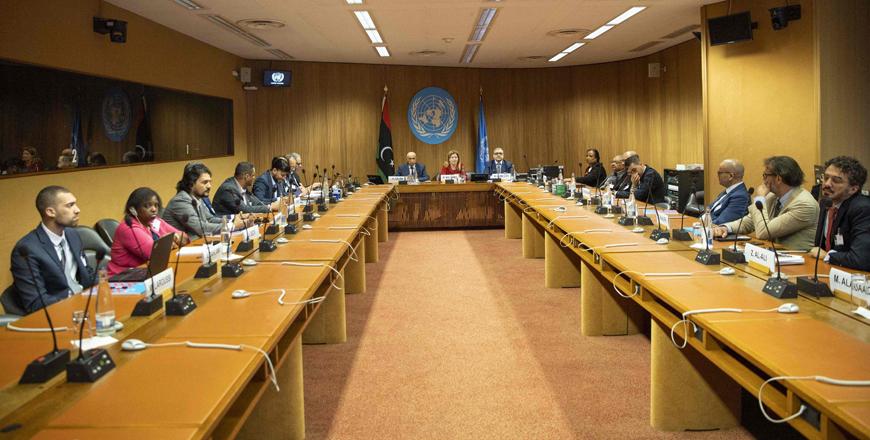You are here
Libya should hold elections even if draft constitution rejected — parliament chief
By Reuters - Jan 14,2019 - Last updated at Jan 14,2019
QUBBA, Libya — Libya should press ahead with national elections even if voters reject a draft constitution in a planned referendum, the head of the country's internationally recognised parliament said.
The comments by Aguila Saleh could help assuage UN and Western concerns that the House of Representatives (HoR) might try to undermine efforts to organise elections to help end the years-long conflict in Libya.
The United Nations and Western powers hope Libya will hold its national elections by June after holding a referendum on a constitutional framework to chart a way out of the conflict, which stems from the overthrow of Muammar Qadhafi in 2011.
‘‘Because we want a constitution [based on] consensus this will take time... We need an executive authority and there is no other choice than [electing] a temporary president [if the draft constitution is rejected]," Saleh told Reuters in a weekend interview in his home town of Qubba in eastern Libya.
He did not mention a possible date for the elections.
A French plan, backed by the United Nations, had initially called for national elections on December 10, but weeks of fighting in the capital Tripoli between rival groups and parliament's failure to approve necessary legislation made that impossible.
Libya has two governments, one in the capital Tripoli and a rival in the east allied to commander Khalifa Haftar, whose forces control the east. Haftar is seen as a likely contender in the next presidential election.
The High National Elections Commission said last month it could organise a referendum in February if it received funding from the UN-backed government based in Tripoli.
Saleh said the HoR could, if needed, secure funds from the Haftar-linked government in the east to allow the referendum on the draft constitution to go ahead.
Persuading voters to approve a draft constitution could prove very difficult in a country so deeply divided between two rival governments and parliaments and also along tribal lines.
If voters reject the draft constitution, Saleh said, a special committee should work on a new version. The current draft envisages a parliamentary system with two chambers but also with a strong presidency.
The United Nations wants to stage a national conference for Libyans in early 2019 to overcome the country's divisions and decide what type of elections they want, presidential or parliamentary.
Related Articles
TRIPOLI — The upper house of Libya’s parliament called Monday for presidential elections set for December to be postponed for a year followi
GENEVA — Talks between rival Libyan institutions aimed at breaking the deadlock over the rules for long-awaited elections failed to resolve
TRIPOLI — The United Nations said Thursday it will broker new talks between rival institutions from war-torn Libya next week to try to break


















